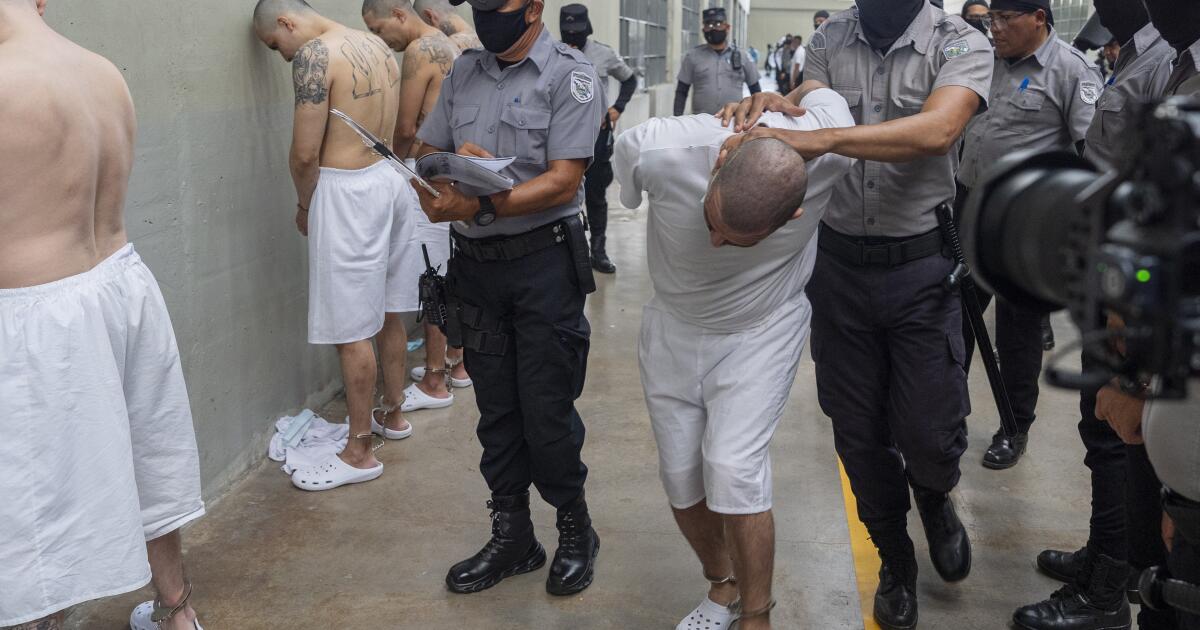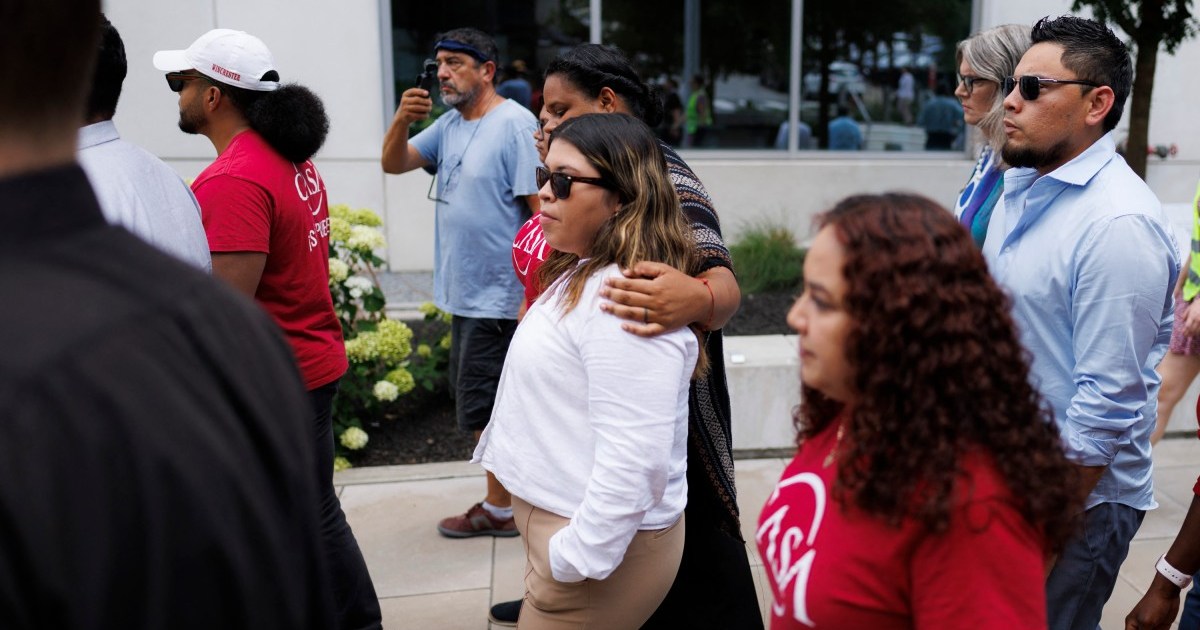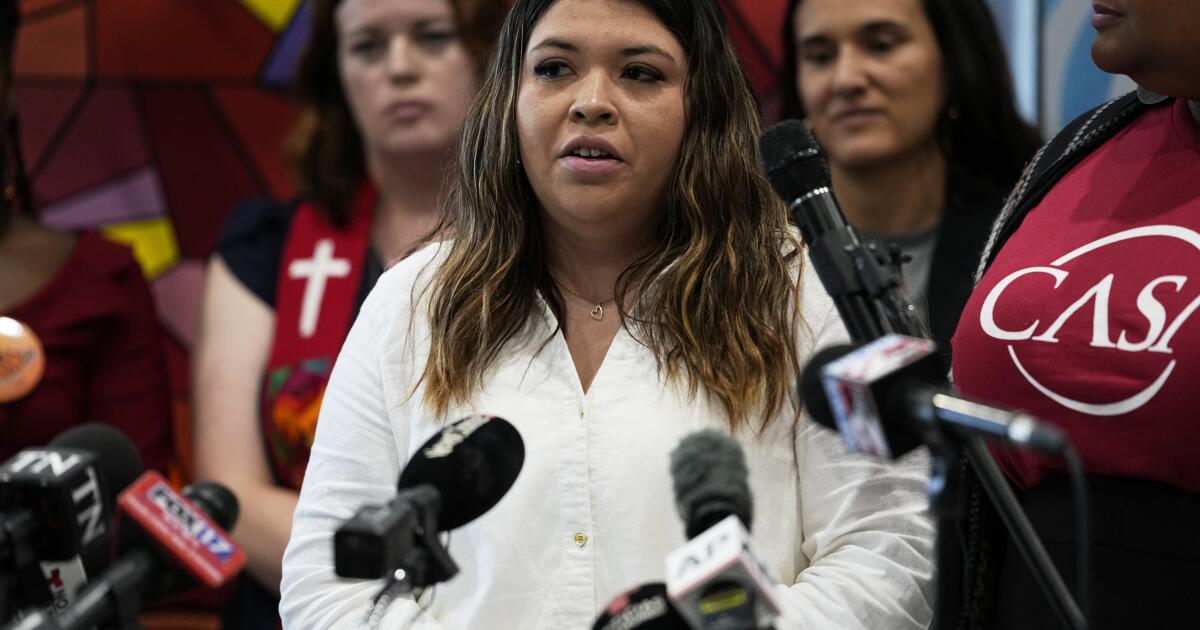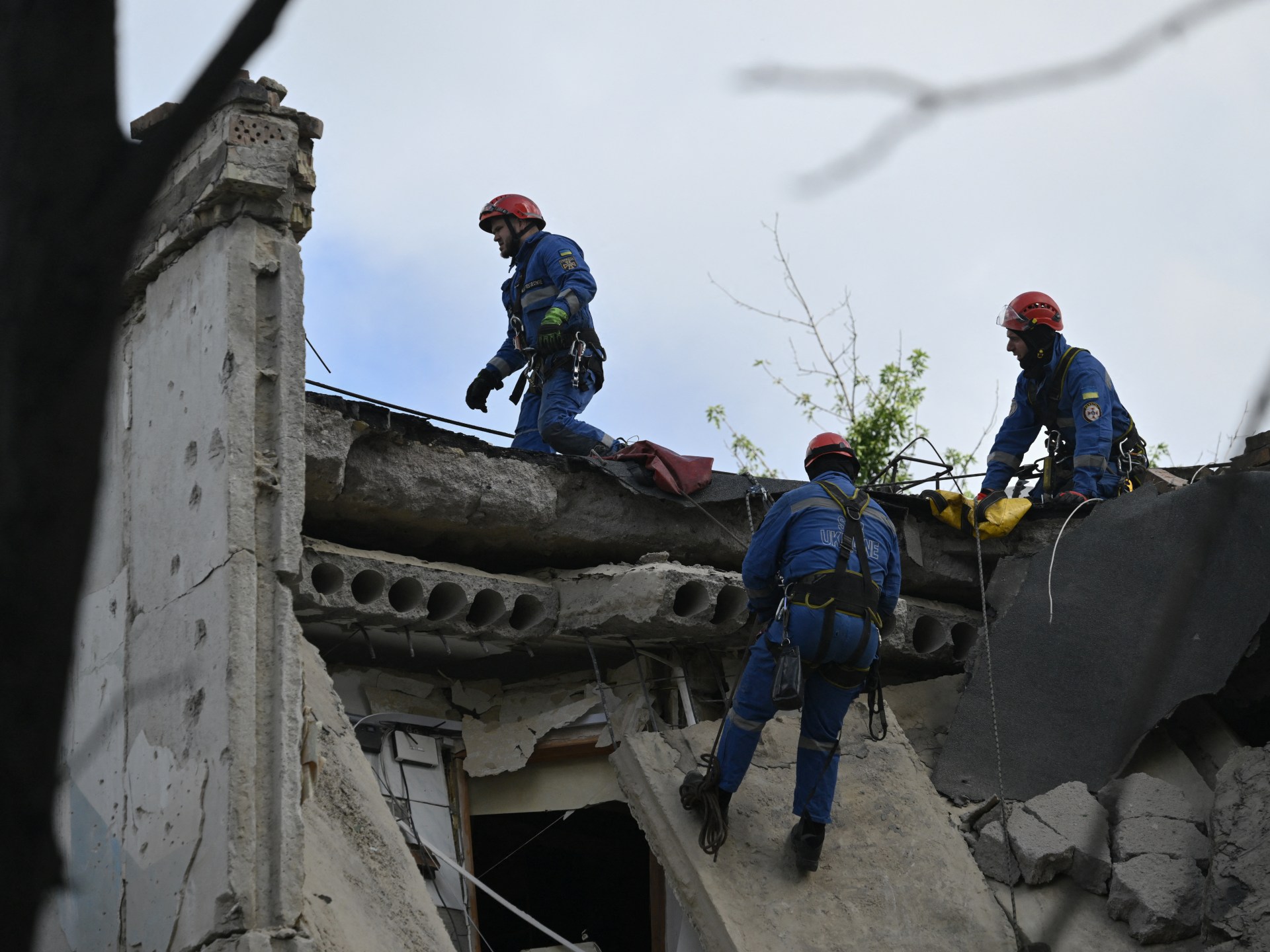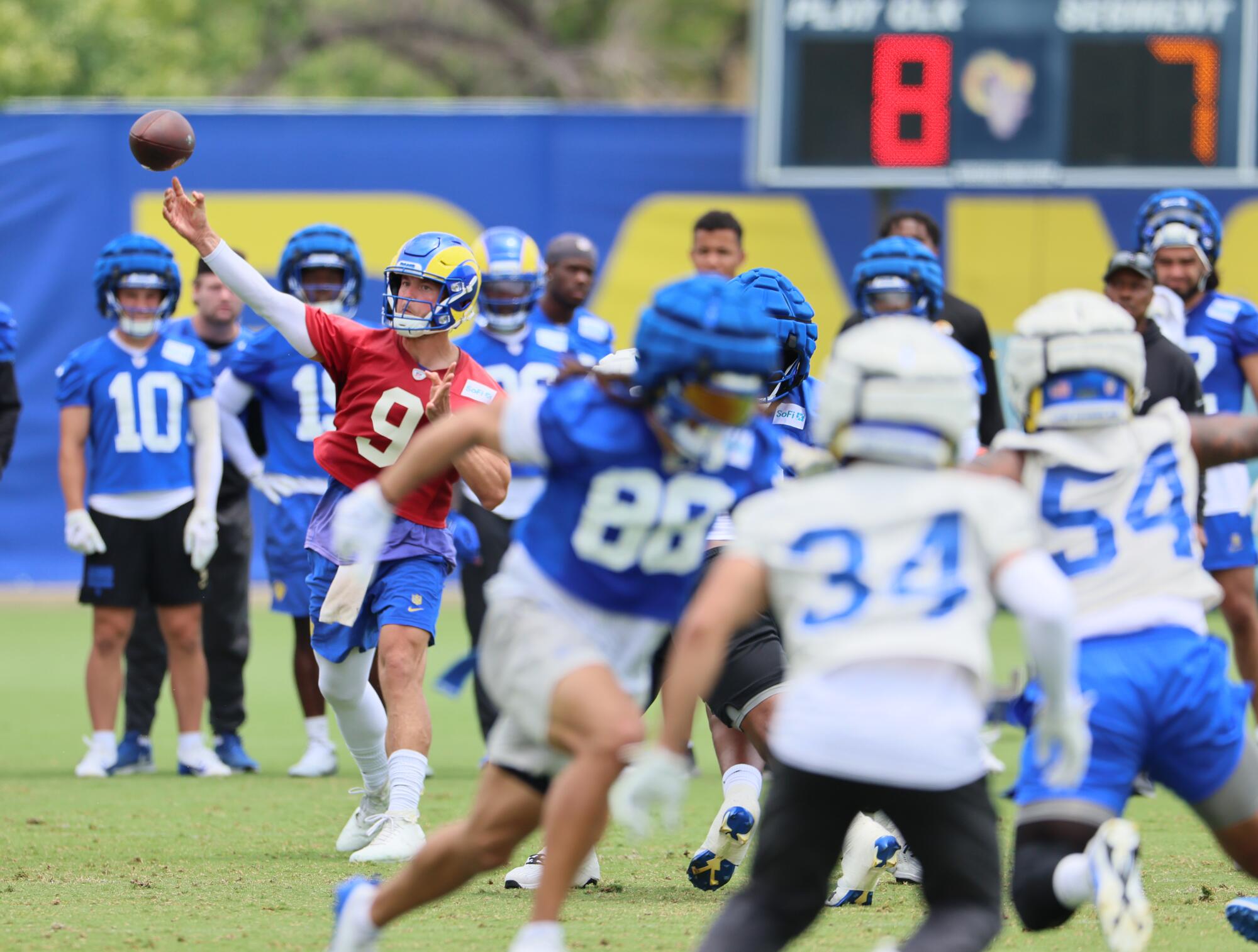A Salvadoran national whose mistaken deportation spurred national outcry in the United States will remain in jail for now, as lawyers discuss how to prevent him from being removed from the country a second time.
On Wednesday, Kilmar Abrego Garcia was set to be released from pre-trial custody without having to post bail. He is being held in detention in Nashville, Tennessee, on criminal charges of human smuggling.
The administration of President Donald Trump had sought to stop his release, deeming him to be a flight risk.
But US District Judge Waverly Crenshaw upheld a magistrate judge’s earlier decision finding that Abrego Garcia was eligible to walk free.
However, in an unexpected twist, lawyers on both sides argued that, if Abrego Garcia were released, he risks being taken into the custody of Immigration and Customs Enforcement (ICE) for a second deportation.
That would deprive Abrego Garcia of the chance to defend himself against the charges, which he has denied. And lawyers for the government argued that it would also scuttle their criminal case against him.
Judge Crenshaw noted in a written decision that, since it is the government’s choice whether or not to deport Abrego Garcia, the situation appeared to be a case of the executive branch doing “injury on itself”.
“If deported, the Government argues, the Department of Justice will be deprived of the opportunity to pursue its criminal charges against Abrego,” Crenshaw wrote.
But, he added, “it is the Executive Branch’s decision that places the Government in this predicament.”
Ultimately, it was decided that Abrego Garcia would remain in custody while lawyers sparred over whether they could prevent Abrego Garcia’s deportation if he were released to await trial.
A high-profile case
Abrego Garcia appeared at the Wednesday hearing wearing an orange jail-issued T-shirt and a headset to listen to the proceedings through a Spanish interpreter.
It was the latest chapter in an ongoing fight between Abrego Garcia and the Trump administration over whether he would be allowed to stay in the US.
According to his lawyers, Abrego Garcia fled El Salvador as a teenager to avoid gang violence, arriving in the US around 2011. He has lived for more than a decade in Maryland, where he and his American wife are raising three children.
In 2019, a judge granted him a protection order that barred his removal from the US.
But on March 15, Abrego Garcia was swept up in the immigration raids being conducted as part of President Trump’s mass deportation campaign.
He and more than 200 other Venezuelans and Salvadorans were accused of being gang members, and they were deported to El Salvador.
Many of the men were sent to the Centro de Confinamiento del Terrorismo, or CECOT, a maximum-security prison for those accused of terrorism. But advocates for the deported immigrants have argued that many of their clients had no criminal records and were in the process of seeking legal immigration status in the US.
Advocates have also pointed out that ICE has provided scant evidence against some of the deported individuals, in some cases appearing to arrest people based solely on their tattoos.
The Trump administration, however, has designated Latin American gangs like MS-13 and Tren de Aragua as “foreign terrorist organisations” and sought to crack down on their presence in the US.
A number of legal challenges followed the deportation flights to El Salvador. In Abrego Garcia’s case, the government acknowledged that his removal had been the result of an “administrative error”.
But the Trump administration initially insisted he could not be brought back to the US even after the Supreme Court in April ordered the government to “facilitate” his return.
A return to the US
That changed on June 7, when Abrego Garcia was returned to the US. The Trump administration justified the return as necessary to confront him with charges of smuggling undocumented migrants inside the US.
Those charges stem from a 2022 traffic stop for speeding in Tennessee. In a video recording of the stop, one of the police officers observed that Abrego Garcia was driving a vehicle with nine passengers and speculated he might be a smuggler. But no criminal charges were brought at the time.
In announcing Abrego Garcia’s return to the US this month, the Trump administration revealed it had sought a criminal indictment in May of this year.
At the recent detention hearings, Homeland Security special agent Peter Joseph testified that he did not begin investigating Abrego Garcia until April.
Abrego Garcia pleaded not guilty to the smuggling charges on June 13, and his lawyers have characterised them as an attempt to justify his mistaken deportation.
On Sunday, US Magistrate Judge Barbara Holmes ruled that Abrego Garcia does not have to remain in jail before his criminal trial.
But she described that decision as “little more than an academic exercise”, given that it was likely Abrego Garcia would be taken back into custody by ICE if released.
How to prevent Abrego Garcia from being deported a second time became the focus of Wednesday’s hearing.
A lawyer for Abrego Garcia, Sean Hecker, noted that witnesses cooperating with the Trump administration had been protected from possible deportation.
“The government has ensured witness cooperation by ensuring that people will not be deported,” Hecker said.
If the government could protect those witnesses from removal, Hecker asked why it could not do the same for Abrego Garcia.
Representing the government’s case, meanwhile, was acting US Attorney Rob McGuire. He argued that the executive branch of the government was vast, and he had little control over every entity’s actions.
Still, he added, he would ask the Department of Homeland Security for its cooperation in not deporting Abrego Garcia.
“That’s a separate agency with separate leadership and separate directions,” McGuire said. “I will coordinate, but I can’t tell them what to do.”
Speaking at a news conference before the court hearing, Abrego Garcia’s wife, Jennifer Vasquez Sura, noted that it had been 106 days since her husband had been “abducted” by the government. She called for his safe return.
“Kilmar should never have been taken away from us,” she said. “This fight has been the hardest thing in my life.”
